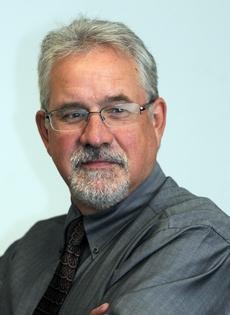
The newspaper editorial board meeting is more like a job interview than any other stop on the campaign trail.
Editors pepper candidates with questions on a wide range of topics, not just the day’s headlines. They probe to see if the candidate can back up his talking points, has thought through the implications of his positions, has studied the issues and mastered the details.
They take the measure of his temperament, his intellect, and how quick he is on his feet.
As a longtime editorial page editor, I’ve presided over hundreds of ed board interviews, with candidates for school board, for governor and every office in between. I’m not likely to get Donald J. Trump into our conference room for an hour-long interview, so I settled for the next best thing, listening to his meeting with the editorial board of The Washington Post.
You can listen too, and read the transcript, on the Post’s website. And you should if, like me, you’ve wondered if behind Trump’s campaign shtick hides a calculating mind with a passing knowledge of public policy, capable of handling the highest office in the land — or any office, for that matter.
My answer is no. With the possible exception of a landscaper I recall interviewing for a state rep seat, none of the candidates I’ve interviewed are as out of their depth as Donald J. Trump.
On question after question, Trump can’t back up his talking points with either facts or argument. He’s been denouncing the Iran deal for a year, but pressed by the Post editors, he couldn’t come up with anything to say beyond the lines from his stump speech.
The Post editors repeatedly asked Trump for his opinion on whether there are racial disparities in the criminal justice system, and he kept saying the answer is more jobs for the inner cities. Pressed harder about racial disparities, he said “I have no opinion that,” but that “the answer is jobs.”
Over and over again, I was struck by Trump’s lack of preparation. Trump — or at least his staff — had to know the editors would ask about his not-so-veiled threats toward the press and his musings about changing the libel laws. The Post had run editorials fretting about Trump and the First Amendment. Even someone running for state rep would be prepared to respond to criticism the editor he was meeting with had voiced.
Not Trump. He offered no thoughts on the role of the press in public affairs, no concern for the difficult conflicts between the privacy rights of individuals and the freedom of the press, no hint that he had ever spent five minutes contemplating the First Amendment.
“Libel laws don’t even exist in this country,” he said, and launched into a general tirade about how badly he’s been treated. “Look, I’ve had stories written about me — by your newspaper and by others — that are so false, that are written with such hatred,” he said. “I’m not a bad person.”
But how would he like to see the libel laws changed?
“I want to make it more fair from the side where I’m on.”
What you learn from spending an hour with Donald Trump is that his entire frame of reference is himself. That’s all he’s interested in talking about; all he’s capable of talking about. He spent several minutes in the ed board defending the size of his hands, not that anyone asked. “My hands are normal hands,” he said. “Slightly large, by the way.”
Trump doesn’t know much about anything, certainly anything involving public policy — in fairness, the editors didn’t quiz him on golf, skyscraper construction or the gradations of female beauty, three of his alleged areas of expertise.
But what’s more striking is that he shows no interest in learning anything.
He’s been running for president for nearly a year and thinking about it for much longer — he copyrighted the phrase “Make America Great Again,” just days after the 2012 election. But he hasn’t felt the need, let alone the curiosity, to study the material.
“I’m a smart person,” he told the Post editors. “I understand what’s going on.”
No and no.
Earlier in the campaign, I worried that Trump would, at some point, unveil a new script showing that he was more moderate, more perceptive, more presidential than people were giving him credit for; that he would stop saying crazy, offensive things and start winning over middle-of-the-road voters. But that would take brains, knowledge and discipline that he just doesn’t have.
Trump’s foolish talk last week about punishing women who get abortions provides further proof that his brain is mostly there to give his hair a place to perch.
Generations from now, historians may still be trying to figure out how a candidate of such stunning limitations won so many votes.
As for me, I wouldn’t endorse him for state rep.
Rick Holmes writes for GateHouse Media and the Metrowest Daily News. Contact him at rholmes@wickedlocal.com, like him on Facebook at Holmes & Co, and tweet him @HolmesAndCo.
This article originally appeared on Crestview News Bulletin: HOLMES: For Trump, it's all about Trump
